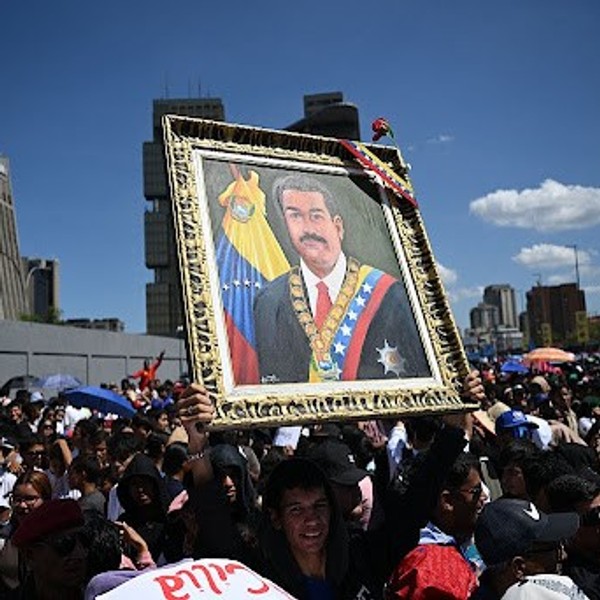9/11 fundamentally shifted US foreign policy priorities towards the Middle East. When will we have a similar reckoning with China?
OPINION — This year marks the 22nd anniversary of 9/11. For those of us old enough to still know where we were that awful morning, we can recall the overwhelming sense of loss and the desire for an immediate response to the unprovoked attacks. 9/11 was not simply an assault on our loved ones and sense of being, it marked a strategic shift in U.S. policy that prompted drastic changes and a two-decade commitment of resources focused on counterterrorism. (As a mark of different times, the first leader to call President Bush was Vladimir Putin.)
Where al-Qaeda destroyed innocent lives and sowed fear through shocking acts of terrorism, the antagonist of today’s generation, the Communist Party of China (CCP), approaches their goals in more subtle ways. The CCP undermines global norms, obstructs international law, sows misinformation, steals intellectual property, and is pushing to align existing international institutions toward its own priorities, not to mention establishing parallel Chinese-led international organizations as a counterweight to existing structures.
Ultimately, the CCP aims to replace the current world order with one aligned with “Chinese characteristics,” a CCP term that combines a Leninist party system, autocracy, repression, and widespread state control of society.
Cipher Brief Subscriber+Members enjoy unlimited access to Cipher Brief content, including analysis with experts, private virtual briefings with experts, the M-F Open Source Report and the weekly Dead Drop - an insider look at the latest gossip in the national security space. It pays to be a Subscriber+Member. Upgrade your access today.
What makes the CCP a more enduring threat than anything we face today, is that their tactics lack any exigency. Their gradual infringements have lulled both companies and governments away from establishing firm boundaries.
While 9/11 presented a clear moment that necessitated action, the CCP’s challenge to U.S. security has so far failed to precipitate a similar response. When it comes to the CCP, the U.S. needs to ask itself a crucial and unanswered, question: where are our redlines?
Some point toward Taiwan as that red line. A Chinese invasion of the island would spur the U.S. into action and would galvanize allies against China. Economic sanctions, isolation, and possibly military action would likely follow.
However, launching a Taiwan invasion with uncontrolled consequences, does not align with China’s legacy, mindset, or strategy of moving only when victory is certain. So, what happens when China does not invade, but instead continues to erode the established boundaries?
For the sake of argument, let us assume that the CCP agenda has never included plans for an invasion of Taiwan. In this scenario, the CCP’s rhetoric is a pointed effort to captivate our focus and our resources, to strengthen our resolve – and even over-rotate – around the Taiwan issue, as well as to fortify the international consensus around that redline. In that scenario, we can proudly claim we deterred the PRC, but as the invasion fails to materialize, what have we allowed in the meantime?
There will be no 9/11 moment with China that launches the U.S. into action. Rather, we will continue to suffer the steady drip of state sponsored subversion, bribery, disinformation, theft, hacking, infrastructure attacks, dismissal of international law, weakening of international institutions, and broken norms of behavior.
As that drip becomes a trickle, and eventually a flood, we will not notice that we are drowning, until it is too late. The lack of a global consensus around what constitutes responsible state behavior has already advanced China’s agenda.
Al-Qaeda’s eventual defeat was not America’s doing alone. It was the international community, businesses, and governments alike, that rallied and supported an effort that the U.S. led. Multinational corporations and multinational institutions acted together. We need that same unity to counter China’s weaponization of the very structures that undergird these institutions.
This 22nd anniversary of that horrid day should serve as a wakeup call to governments and businesses around the world. As we examine today’s biggest threat, it is not a non-state actor, working outside norms and conventions. Rather, we are dealing with something much more dangerous: a state actor that revels in shattering norms and ignoring established conventions.
After 9/11 we agreed that if we “see something, say something.” We need a version for today: when you see something, do something. Governments need to act.
Today’s threat requires unity and a vigorous, coordinated response. Share information widely and swiftly across governments and the private sector; educate multinational corporations and institutions about the threats; push for consensus on the norms of international behaviors and repercussions for violations; and perhaps most importantly, follow through on commitments to red lines.
If we continue to sacrifice our values, ingenuity, and institutions for short-term profits and wishful thinking about peaceful evolution, we will soon have nothing but regret that we had not acted sooner.
The Cipher Brief is committed to publishing a range of perspectives on national security issues submitted by deeply experienced national security professionals.
Opinions expressed are those of the author and do not represent the views or opinions of The Cipher Brief.
Have a perspective to share based on your experience in the national security field? Send it to Editor@thecipherbrief.com for publication consideration.
Read more expert-driven national security insights, perspective and analysis in The Cipher Brief















